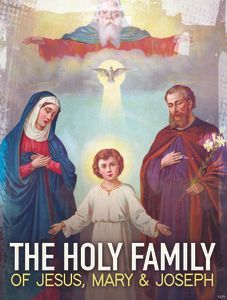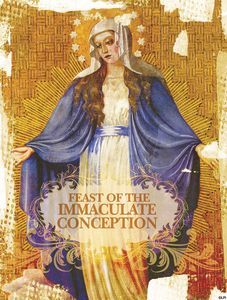“Human destiny, it is true, can only be finally achieved in God alone. But it is also true that the human person does not arrive at [their] final end except within a community.”- Jean-Pierre Torrell, Saint Thomas Aquinas: Spiritual Master, 278.
These words come from Fr. Jean-Pierre Torrell, OP, who extrapolates on Thomas Aquinas’ understanding of the human person. Aquinas highlights that humans are designed to be part of a community, a stance the Church has since adopted into its own understanding of the human person. In reality it isn’t just one community that we are part of but many—the community of our parish, our city, our country, etc. These communities influence us in some regard or another, and we in turn exert some influence back on them through our interactions within them. Aquinas’ argument is that these communities are essential for us, for it is from their influence on us and our influence on them that we can come to understand and embrace our share of the Cross and accept the love that God continually offers to us. God gave us these communities for a reason.
Arguably the most essential community for all of us is our own families. It is in this first community that we learn many basic functions necessary for life—how to walk and talk, what is right and wrong, etc. Our families often influence our preferences, shape our expectations of how life is to be lived, and teach us who God is. This community is essential to what it means to be human.
This Sunday we celebrate the Feast of the Holy Family; a holy day that is given prime importance in our calendars as the Sunday that immediately follows Christmas Day. Today’s celebration, like our Christmas celebration, is a time for us to hold up Jesus’ humanity. Because He took on our full humanity, Jesus was integrally part of our communities, especially the fundamental community of the human family. That’s what today’s feast focuses on: the human family that Jesus chose to be part of, to be influenced by and to exert influence on.
If you’re anything like me, this celebration of the Holy Family calls to mind my own lack of virtue and the many ways that my own family life seems so far from that of the Holy Family. In reflecting on the Holy Family, you might think that Jesus chose to live in a family at the right time—a time before cellphones distracted, automobiles and HVAC made lives comfortable, and food was conveniently close and almost always in stock. This combined with the sanctity of Mary and Joseph, might lead us to think this holy family was isolated from the struggles that the rest of our human families experience. To some degree we are right to think that—Jesus was the Son of God and Mary and Joseph are our greatest Saints. However, we are given in today’s Gospel a window into the inner humanity of the Holy Family: Mary and Joseph experienced great anxiety and confusion because of Jesus’ choice to not tell them where He was. (What parent hasn’t experienced similar anxiety and confusion by one of their children’s actions?) That isn’t to say that Jesus did something wrong—we know that God’s will is often far beyond our understanding in the moment—yet His actions affected those closest to Him. Upon finally finding Jesus in the Temple, Mary asks bluntly: “Son, why have you done this to us?” I feel we can all read into that question and see the hurt in Mary’s heart at losing Jesus and see her struggle to comprehend why Jesus did not tell them where He was.
As is evident in our Gospel, even when we do things perfectly there are often still repercussions which affect our family members, as God’s perfect will still led to Mary and Joseph’s distress. It is important to remember that God gave us our families to teach us and to help us work out our sanctification by forcing us to love those who often cause us much confusion and anxiety. The life of the human family is filled with many interactions that challenge our patience and evoke some of our strongest emotions, but it is these interactions that we are called to embrace as our means of growing in sanctity. Despite the temptation toward despair in these moments, let us look to the Holy Family for hope: they faced many difficulties together, yet they never lost their love for each other or their understanding that God had chosen them for this family for a reason. Likewise, God has given us our families for a reason. Let us lovingly embrace them and patiently allow them to influence us, aware that our growth in sanctity allows our families to become more and more like the Holy Family.













